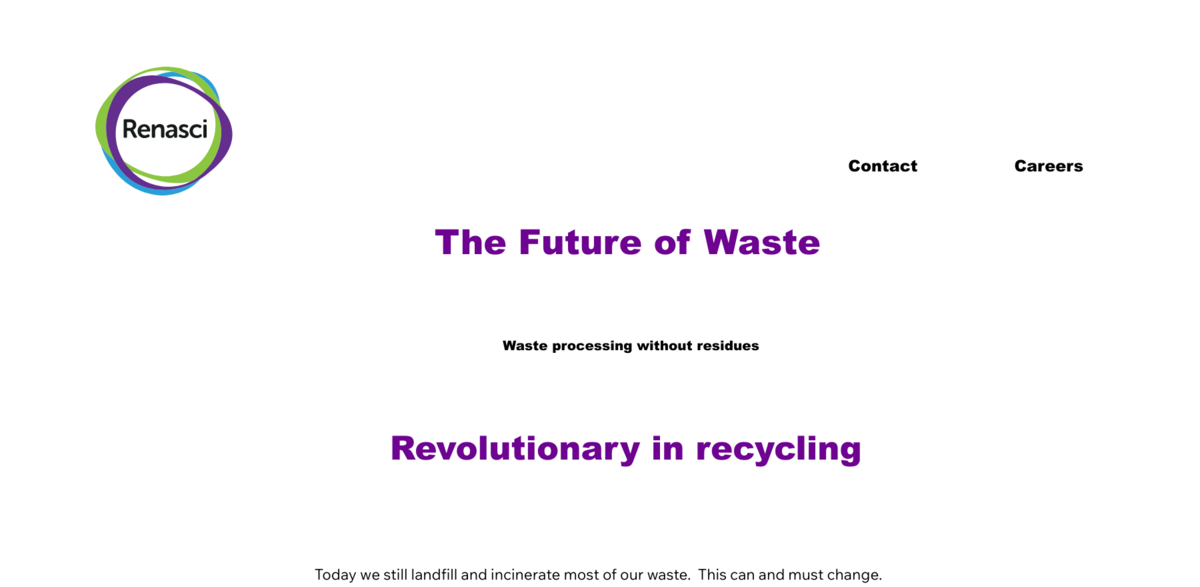What is the Renasci Project?
The Renasci test plant, located in Ostend, kicked off its journey in the first quarter of 2019 and became fully operational by the fourth quarter of 2020. Since then, it has been on a mission to revolutionize waste processing. Over the years, continuous improvements in both processes and equipment have shaped its evolution. In 2023, Borealis took over the company, integrating it into its Circular Economy Solutions. And from 2024 onwards, the spotlight has been firmly on the Plastic to Chemicals (PtC) process, marking a new chapter in sustainable waste management.
Main Benefits of the Renasci Plant
Renasci isn’t just another waste facility. It’s a game-changer. Here’s why:
- Waste processing without residues – aiming for zero waste left behind.
- Introduced Smart Chain Processing – a unique concept converting waste into valuable raw materials and renewable energy.
- Focus on Plastic to Chemicals (PtC) – turning non-recyclable plastics into feedstock for virgin plastics production.
- Certified sustainability – ISCC PLUS certification ensures the operation meets high standards for sustainable feedstocks and materials.
- Supports EU goals – aligns with the EU’s push for higher plastic waste recycling rates.
The Challenge of Waste Today
Even now, a large chunk of waste ends up in landfills or gets incinerated. This is a reality that many find hard to accept, especially given the ecological and economic consequences. The Renasci project challenges this status quo, showing that it doesn’t have to be this way. The need for change is urgent, and the EU’s regulations are pushing for better recycling rates, making projects like Renasci more critical than ever.
Smart Chain Processing: A Unique Approach
At the heart of Renasci’s innovation lies the Smart Chain Processing concept. This isn’t just about recycling; it’s about transforming waste into something valuable. By converting waste into raw materials and renewable energy, the process closes the loop in a circular economy. It’s a fresh take on waste management that goes beyond traditional methods, offering a glimpse into the future of sustainable industry.
Plastic to Chemicals (PtC): The Future Focus
Since 2024, the Renasci plant has zeroed in on the PtC process. This thermal technology breaks down non-recyclable plastics, turning them into feedstock for producing virgin plastics. It’s a clever way to tackle plastics that would otherwise be discarded, giving them a second life and reducing the need for fossil-based raw materials. This shift highlights Renasci’s commitment to innovation and sustainability.
Impact on Sustainable Development Goals (SDGs)
- SDG 12: Responsible Consumption and Production – promoting sustainable waste management.
- SDG 13: Climate Action – reducing landfill and incineration emissions.
- SDG 7: Affordable and Clean Energy – generating renewable energy from waste.
- SDG 9: Industry, Innovation, and Infrastructure – pioneering new recycling technologies.
- SDG 11: Sustainable Cities and Communities – contributing to cleaner urban environments.
Looking Ahead: The Future of Waste Management
The Renasci project is more than just a plant; it’s a vision for the future. By combining cutting-edge technology with a clear focus on sustainability, it sets a new standard for how waste can be handled. The journey from test plant to a fully operational facility under Borealis’s wing shows a commitment to continuous improvement. As the world grapples with mounting waste challenges, Renasci offers hope – that waste doesn’t have to be a problem, but rather a resource waiting to be unlocked.


















